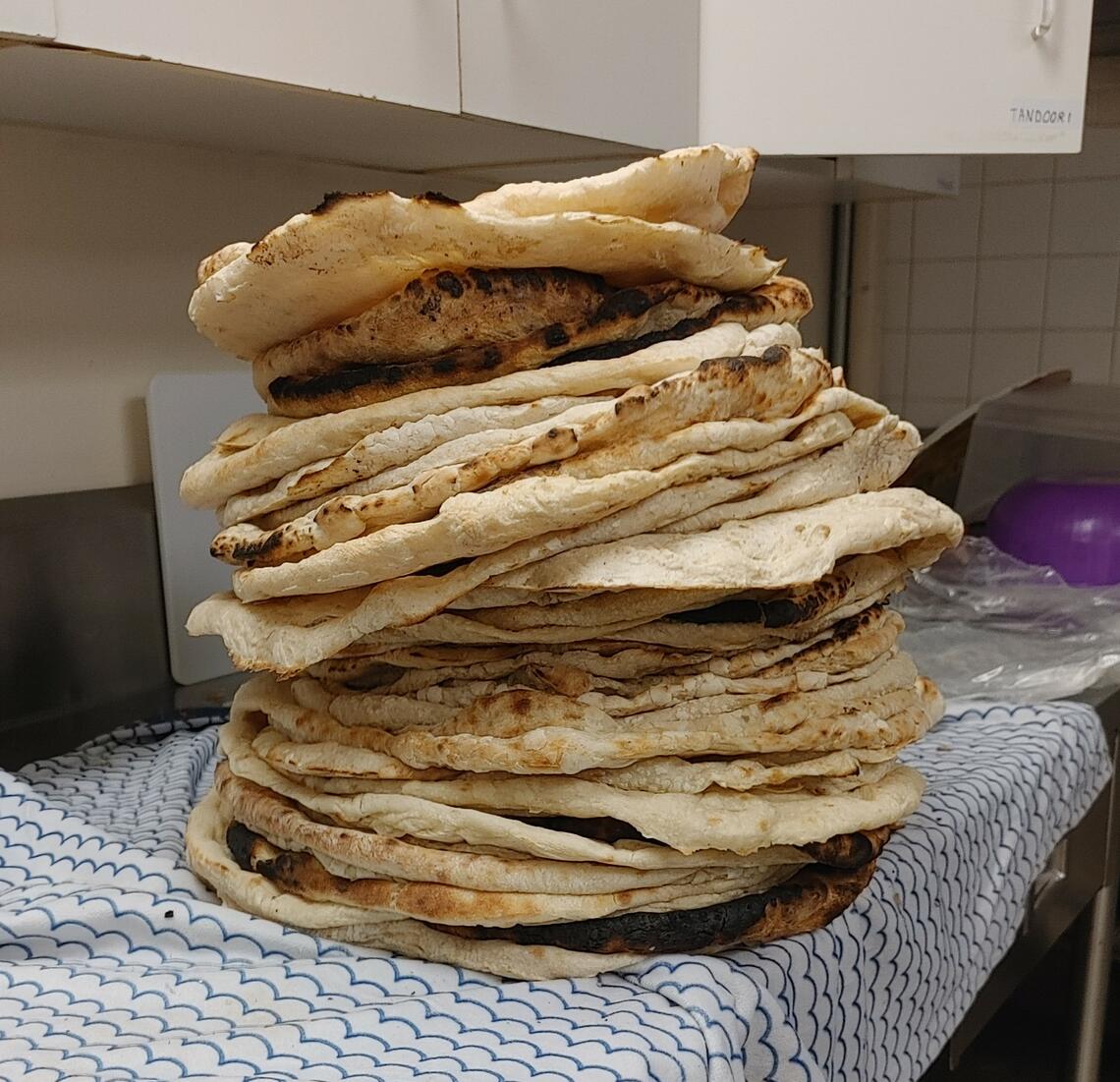April 24, 2023
Nursing students work with Yazidi refugees to start kitchen program at Rockpointe Community Church

It started in the fall of 2021 with a group of second-year UCalgary Nursing students in a community health placement in the Calgary community of Bowness. In helping to organize a holiday market with Yazidi refugee women — displaced from northern Iraq during the religious persecution and genocide in August 2014 — the students found that baking bread was not only an integral part of their culture, it was also therapeutic and allowed the women in particular the opportunity to socialize.
Almost two years and three semesters of students later, another cohort of eight students wrapped up their 2023 winter term clinical placement by imparting their work to community partners with a heartwarming presentation about how they continued to build relationships with this population. In conjunction with Rockpointe Community Church, the students worked to get a kitchen program set up. But first, they built trust.
“That is key to the relationship-building,” Freddie Yuan tells us. That was the message he also gave during the presentation to church members and other stakeholders like Reach YYC and Project Abraham Resettlement and Support for victims of persecution.
“We visited the families in their own homes to see first-hand how they lived and to let them know we wanted to help create a trust bond with them.
“The men meet and walk together: they are more confident speaking English,” Yuan continues. “Some have jobs.
The women stay home and look after children so their social integration is inadequate compared to their spouses.
The home visits from the students included resume reviews and health education including the importance of self-care, says Ubaka Ekwunife. “The stories are hard to hear. The older son in one of the families I visited hadn’t seen his father in over two years and wasn’t even sure if he was still alive.”
Mental health and adopting personal coping skills is pivotal to helping the families feel at home in their new country. And a kitchen program is a way to develop connection and tools to help with that.

From left, Ubaka Ekwunife, Freddie Yuan, Tenzin Tsephel, Ruchi Sarohia, instructor Cheryl D’Souza, Kobe Holloway, Nicole McKenzie, Chinonye Onyeka, John Sumicion.
Karen Cook, Faculty of Nursing
Instructor Cheryl D’Souza says that one of the needs the church identified was learning about job skills to help the Yazidi families with employment. “One of the biggest barriers to them being healthy and financially stable is finding jobs. Some are struggling even five years later after being settled in Calgary. And so for the women, we started finding out what marketable skills they had, what were some of their hobbies? How can we utilize some of their strengths and also help them not feel quite so isolated not only in Bowness but also the Glamorgan Yazidi neighbourhood?”
When an earlier student group discovered that baking bread connected the women, the idea of a program where they would be able to meet in a safe and supportive environment to make bread together, socialize and perhaps eventually — hopefully — sell the bread became the goal. And when the church, with input from the nursing students, bought a specialized tandoor oven for baking the bread, starting a kitchen program became a reality.

Baked bread made by the Yazidi women.
“The laughter and the joy on the faces of the Yazidi women while they were baking was magical,” says a church member. “We need to continue to offer the opportunity for gathering.”
“Our recommendations for the kitchen program include equal opportunities for all to use the oven and to offer childcare for the women who come to bake,” says Nicole McKenzie. “At a potluck dinner we had in March, the families really came together to dance and listen to their own music and the kids got to play games.
“For future student groups, we think connecting and engaging has to continue so we suggest ongoing home visits. Also educating, empowering and supporting versus solving: so, not doing, but showing them how to do things to set them up to thrive. And of course, help them have fun.”
Some of the core skills learned in Term 3, which is the students’ first clinical practice in the undergraduate nursing program, include therapeutic communication and relational nursing practice. One of the most meaningful aspects of the work the students did was building relationships with the Yazidi families.
“When they first come and find out they are working with the Yazidis, they are terrified in a way because of the background and the trauma the refugees have been through,” explains D’Souza.
“But they learn about trauma-informed care, how to practice cultural safety and that relational communication piece and maybe most importantly, that they can make a difference in the lives of these families.”
As of 2019, there were approximately 265 Yazidis in Calgary consisting predominantly of women and children. Roughly 1,400 Yazidi resettled in Canada in 2017.






